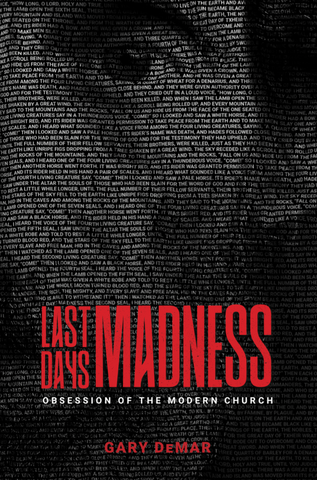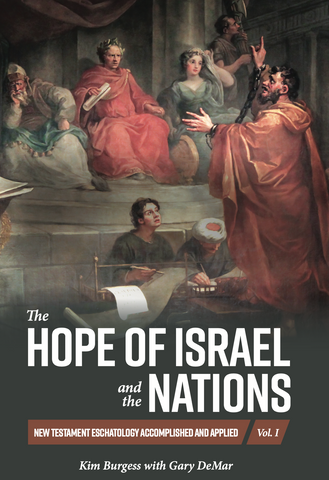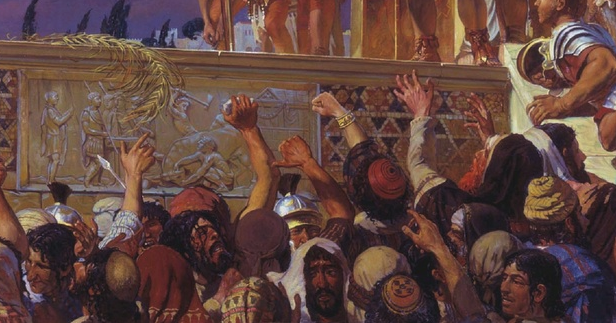I saw the following on Facebook:
The “Anti-Christ,” Obama? or Macron?
Both posted as Possibilities on an Eschatology group recently.
Let’s look at what is plainly written on this.
The post includes Scripture passages about what the Bible supposedly says about a future end-time antichrist. One would think that any discussion about who the antichrists were would consult the Scripture passages that actually use the words “antichrist” and “antichrists.” The person who shared his “insights” with Facebook readers couldn’t go to the verses where “antichrist” and “antichrists” are used because the verses would mess with his interpretation. None of this should surprise us. It’s typical of end-time antichrist advocates. Ken Gentry makes the point with this comment:
Ironically, the least helpful verses for developing the dispensational, premillennial, and amillennial views of the Antichrist are the only ones that expressly mention him. “Antichrist” appears only four times in all of Scripture: in 1 John 2:18, 22; 4:3; and 2 John 7. (John Walvoord in his comprehensive Prophecy Knowledge Handbook does not even mention these verses in his treatment of “Prophecy in 1, 2, and 3 Jn and the Epistle of Jude” — or anywhere else in his 800-page work.)[1]
The subtitle of Walvoord’s book is “All the prophecies of Scripture explained in one volume.” Except the prophecies that mention antichrists.
You read the title of this article correctly. “Antichrists!” Plural. Were … not will be. There is no single end-time antichrist. There were many antichrists and “false prophets” (1 John 4:1) during that first-century Apostolic generation. How do we know? Because John told his first readers of his letters that while they had “heard that antichrist is coming, even now” [their now] many antichrists have arisen” (1 John 2:18). Jesus corrected the “you’ve heard it said” claim during His ministry (Matt. 5:21, 27, 33, 38, 43). John did the same about antichrists.

Last Days Madness
In this authoritative book, Gary DeMar clears the haze of "end-times" fever, shedding light on the most difficult and studied prophetic passages in the Bible, including Daniel 7:13-14; 9:24-27; Matt. 16:27-28; 24-25; Thess. 2; 2 Peter 3:3-13, and clearly explaining a host of other controversial topics.
Buy NowWho were these apostolic era antichrists? They were anti (ἀντί/anti) Christ (χριστος/christos) because of a fundamental theological error “otherwise they would not have crucified the Lord of glory” (1 Cor. 2:8). In what way were they “anti” Christ? John tells us. John defined an antichrist as someone who did not confess that Jesus was from God: “this is the spirit of the antichrist, of which you have heard that it is coming, and now it is already in the world” (1 John 4:3). Note the timing: the spirit of antichrist “is already in the world.” “Already” refers to John’s day.
The Gospels clearly show that the antichrists were the religious leaders who opposed Jesus.[2]
It doesn’t take long to see who the antichrists were. Here’s a prime example:
“Behold, we are going up to Jerusalem, and the Son of Man will be betrayed to the chief priests and the scribes; and they will condemn Him to death and will deliver Him over to the Gentiles. And they will mock Him and spit on Him, and flog Him and kill Him, and three days later He will rise again” (Mark 10:33-34).
There are more examples:
• Now the Passover and Unleavened Bread were two days away; and the chief priests and the scribes were seeking how, after seizing Him in secret, they might kill Him (14:1).
• But one of those who stood by drew his sword and struck the slave of the high priest and cut off his ear. And Jesus said to them, “Have you come out as against a robber, with swords and clubs to capture me? Day after day I was with you in the temple teaching, and you did not seize me. But let the Scriptures be fulfilled (14:47-49).
• Now the chief priests and the whole Sanhedrin were seeking to obtain testimony against Jesus to put Him to death, and they were not finding any (14:55).
• Tearing his clothes, the high priest said, “What further need do we have of witnesses? You have heard the blasphemy; how does it seem to you?” And they all condemned Him as deserving of death. And some began to spit on Him, and to blindfold Him, and to beat Him with their fists and say to Him, “Prophesy!” Then the officers took custody of Him and slapped Him in the face (14:63-65).
These assaults were the actions of Israel’s religious leaders. If they had not been anti-christ, they never would have turned Jesus over to the Roman authorities and accused Him as a political threat. Jesus was a religious and political threat to their power:
Therefore, many of the Jews who came to Mary, and saw what He had done, believed in Him. But some of them went to the Pharisees and told them the things which Jesus had done. Therefore, the chief priests and the Pharisees convened a council meeting, and they were saying, “What are we doing in regard to the fact that this man is performing many signs? If we let Him go on like this, all the people will believe in Him, and the Romans will come and take over both our place and our nation” (John 11:45-48).
It was the “chief priests and the officers” who “cried out …‘Crucify, crucify’” (19:6). It’s no wonder they declared to Pilate, “We have no king but Caesar” (19:15).
Little changed from what we read in the book of Acts. The first persecutors of Christians were the religious leaders:
As they were speaking to the people, the priests and the captain of the temple guard and the Sadducees came up to them, being greatly disturbed because they were teaching the people and proclaiming in Jesus the resurrection from the dead. And they laid hands on them and put them in prison until the next day, for it was already evening (Acts 4:1-3).
The persecution continued through chapters 4 and 5. Then there was the martyrdom of Stephen in chapter 7 and the later persecution of the church in 8:1-3. This continued to the end of the book (28:17-31).

The Hope of Israel and the Nations
The reader and student of the Bible must first understand the content of the New Testament writings in terms of how those in the first century would have understood it. The New Testament is written against the background of the Old Testament. The shadows of the Old were fulfilled in the reality of the New. All the rituals and ceremonies were fulfilled in Jesus. The same is true of the temple, land, blood sacrifices, the nature of redemption, the resurrection of the dead, the breaking down of the dividing wall dividing Jews and Gentiles, and so much more. The New Testament's emphasis is on the finished work of Jesus and its application, not only to that Apostolic generation but to the world today.
Buy NowJohn’s particular use of the word “antichrists” fit with what was happening in his day before the end of that prophesied generation. It was “the last hour” (1 John 2:18). The antichrists were prevalent. Some of them had been part of the Christian fellowship who then apostatized: “They went out from us, but they were not really of us; for if they had been of us, they would have remained with us; but they went out, in order that it might be shown that they all are not of us” (v. 19). John then identifies their beliefs:
Who is the liar except the one who denies that Jesus is the Christ? This is the antichrist, the one who denies the Father and the Son. Whoever denies the Son does not have the Father; the one who confesses the Son has the Father also (vv. 22-23).
This comports with what we find in 2 John 7: “For many deceivers have gone out into the world [timing], those who do not confess Jesus Christ as coming in the flesh [definition]. This is the deceiver and the antichrist.”
They made up the “synagogue of Satan” (Rev. 2:9; 3:9). A “gathering” of them, thus, antichrists—a plurality.
If you read something about “the antichrist,” check to see if they reference the four Scripture passages that use the words “antichrist” and “antichrists.”
[1] Kennth L. Gentry, He Shall Have Dominion: A Postmillennial Eschatology, 3rd ed. revised and expanded (Chesnee, SC: Victorious Hope Publishing, 2021), 377.
[2] Anthony Saldarini “argues that the generic word for ‘Jews’ is better understood across the New Testament in more nuanced terminology, such as Jewish leaders, Judeans, or specific groups within Judaism.” Jonathan E. Sedlak, Reading Matthew, Trusting Jesus: Christian Transition and First-Century Fulfillment within Matthew 24-25 (West Monroe, LA: (Theopolis Books/Athanasius Press, 2024), 4, note 6.

